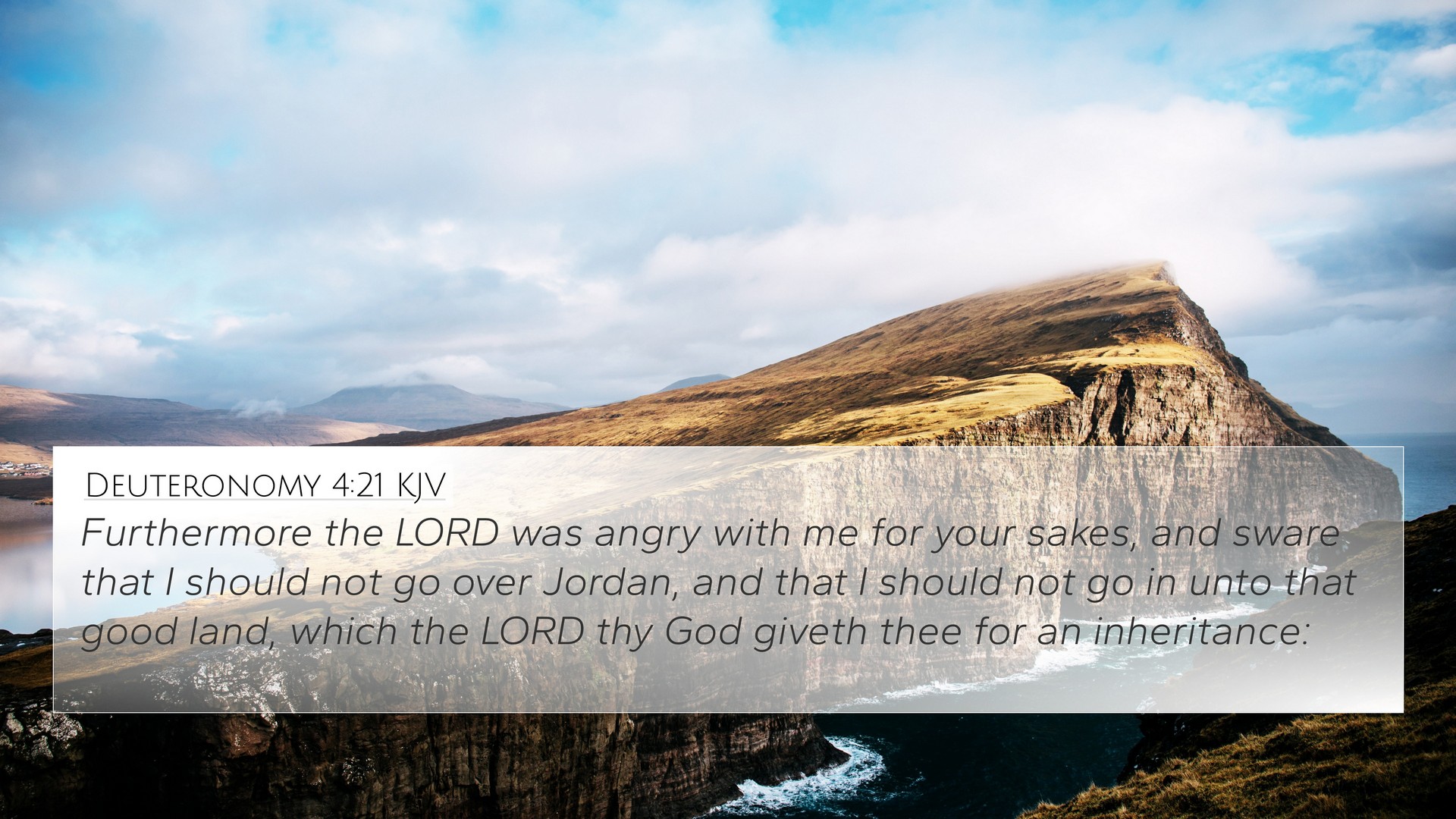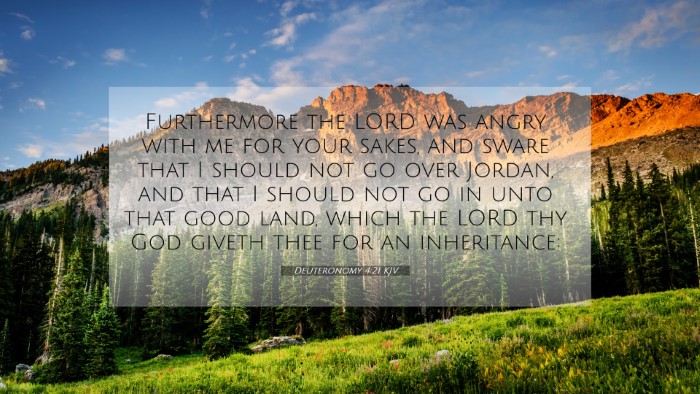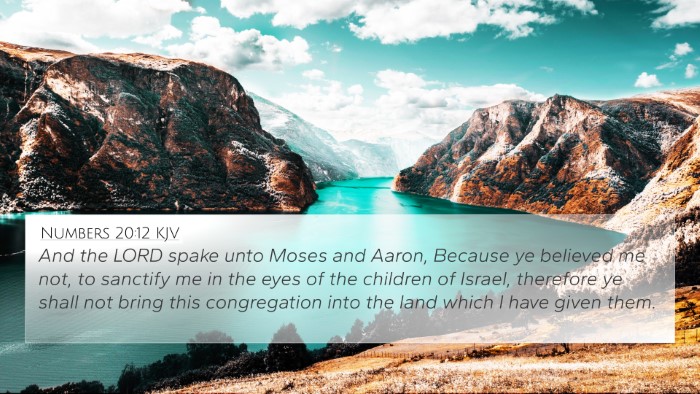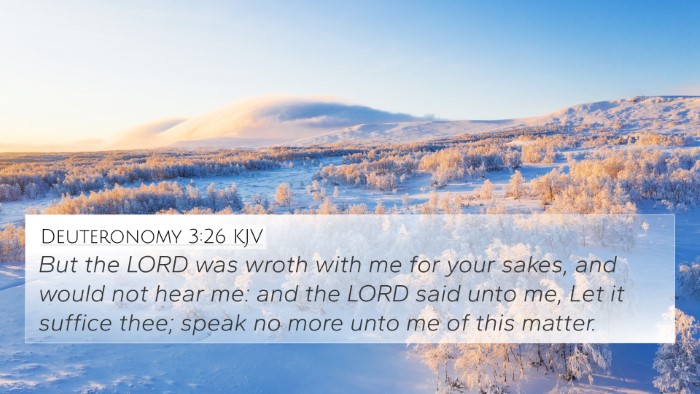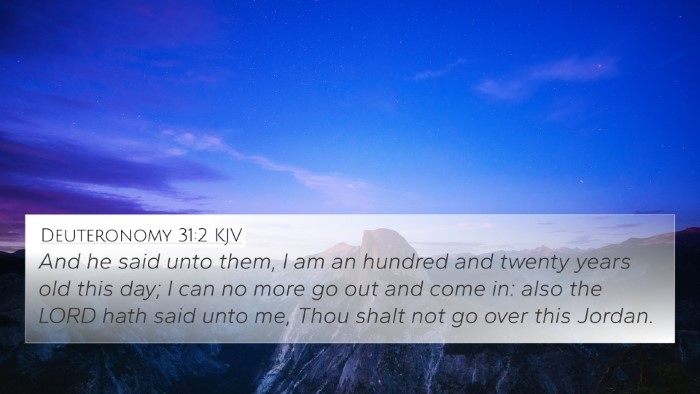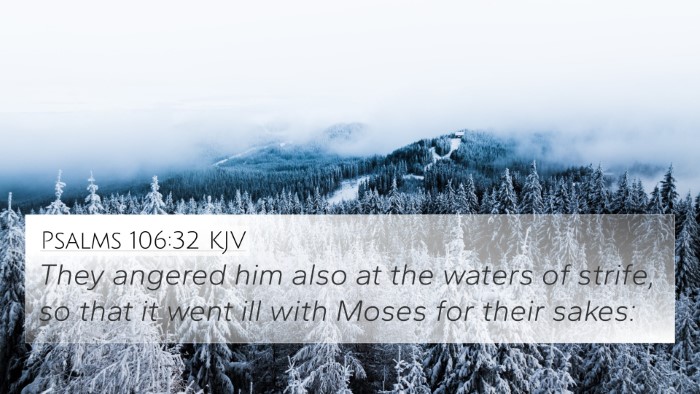Understanding Deuteronomy 4:21
Bible Verse: Deuteronomy 4:21 - "Furthermore, the Lord was angry with me for your sakes, and swore that I should not go over Jordan, and that I should not go in unto that good land, which the Lord thy God giveth thee for an inheritance."
Verse Meaning and Context
This passage is spoken by Moses, who reflects on the consequences of Israel's rebellion and disobedience. It highlights the gravity of sin and how it affects leaders and the people they serve.
Moses' Situation
Moses, although a faithful servant of God, is reminded that he was denied entry into the Promised Land due to the people’s actions. This serves as a powerful reminder of the weighty responsibility of leadership.
Analysis from Public Domain Commentaries
-
Matthew Henry: Mentioned that Moses faced divine displeasure not merely for his actions but for the influence of the people he led. The verse showcases God's righteousness in administering justice.
-
Albert Barnes: Emphasized the heartache Moses felt knowing that his destiny was altered due to the people's transgressions. It underscores the impact of collective sin on individuals.
-
Adam Clarke: Noted that Moses' exclusion from the land serves to illustrate the seriousness of apostasy and that even a faithful leader can face severe consequences as a lesson for all.
Key Themes and Cross-References
The themes in Deuteronomy 4:21 resonate throughout Scripture. Here are 10 Bible cross-references that relate to this verse:
- Numbers 20:12: God explains why Moses is barred from entering the Promised Land due to rebellion.
- Deuteronomy 3:23-27: Moses pleads with God to allow him to enter the good land.
- Hebrews 3:16-19: Reflects on the unbelief of the Israelites in the wilderness.
- James 3:1: A warning about the stricter judgment that teachers and leaders face.
- 1 Corinthians 10:5: Highlights the importance of learning from Israel’s history of rebellion.
- Romans 15:4: Scripture serves to teach us and provide hope.
- Galatians 6:7-8: Emphasizes that we will reap what we sow, similar to the consequences faced by Moses.
- Ezekiel 18:30: Encourages repentance to avert consequences of sin.
- Matthew 23:13: Jesus discusses the dangers of leading others astray, paralleling Moses’ situation.
- Hebrews 12:14: Calls for holiness, akin to the call to Israel to remain faithful to God.
Tools for Bible Cross-Referencing
For those seeking to delve deeper into the connections between the verses, various tools can assist in Bible cross-referencing:
- Bible Concordance: A useful resource for finding related verses.
- Bible Cross-Reference Guide: Helps in discovering links between different scriptures.
- Cross-Reference Bible Study: Methodologies for exploring biblical themes.
- Bible Reference Resources: Comprehensive materials for thorough study.
- How to Use Bible Cross-References: Guidelines for effective study.
Inter-Biblical Dialogue
Understanding Deuteronomy 4:21 through cross-referencing offers an enriched perspective on Biblical themes, such as:
- Identifying connections between Old and New Testament: The implications of Moses' situation can be traced to New Testament warnings about leadership.
- Links between the Prophets and Apostolic teachings: Words of caution from the Old Testament prophets mirror the teachings of Christ.
- Comparative study of Pauline Epistles: Analyzing Paul’s writings alongside the history found in Deuteronomy can yield practical insights.
Conclusion
Deuteronomy 4:21 serves as a sobering reminder of the consequences of disobedience and the responsibility of leadership. By connecting this verse with others through scriptural cross-referencing, we gain a comprehensive understanding of God's justice and mercy throughout Scripture.
Understanding the connections and themes present in the Bible helps believers grasp the weight of spiritual truths and encourages faithful living. This process of connecting scripture also enriches one's personal study and preparation for teaching others.
